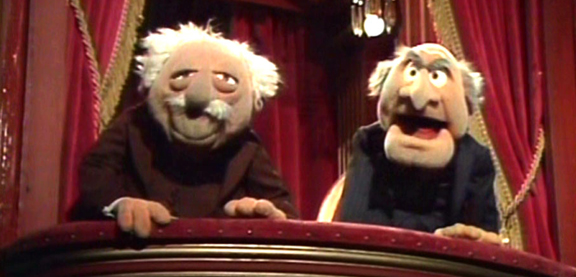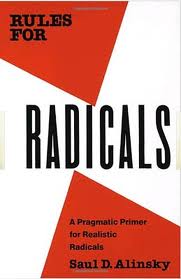SEEING THE RULE
Some people love to “make it personal” in the contest of ideas. Alinsky’s Rule #5 explains why. It is so much easier to vilify a person as opposed to an idea. We apply this rule in what logicians call ad hominem (Latin for “against the man”) attacks.
In the politically correct culture of our day, those who embody Conservative ideals make themselves a target of this rule. Shrewd professors are known for seeking to characterize those whose ideals oppose theirs; and will often seek to find one student who can be mocked as the focus of their ridicule for a term. It is tough to be on the receiving side of this rule. You might be the target.
No one likes being the brunt of a joke or ridicule, but this is what happens when Rule #5 is used. The professor, fellow student or other person who has singled you out for ridicule probably enjoys the popularity and power that comes with such actions. This means that until you eliminate or diminish the enjoyment that it gives them, they will likely keep doing it. Think about how to make your opponent enjoy this tactic less by responding in a thoughtful way that gives them less satisfaction and self-glory.
USING THE RULE
Alinsky’s Rule #5 has been popularized in contemporary American culture. His advocacy of it is rooted in his view that the ends justify the means. Assess your own views on the nature of people – ideological adversaries or not – and come to your own conclusions about whether it is appropriate to use on your campus or in other spheres of influence.
The way of power and hostility has certainly been a historical mode of affecting change, but many “radicals” have sought change and brought about great change by using other means of engagement. Perhaps the most famous of radicals, for example, told us to “love our enemies.” Of course, if all humans are merely a cluster of chemicals, ridicule is simply and pragmatically a best practice for achieving a goal. But if all humans possess worth and dignity, then we must behave more respectfully and compassionately toward them, even in the midst of debates that are of great importance.
We can also admit to the power of using irony in a kind way. We can use irony to call attention to the fact that anything contradicting reality can seem strange, even “funny.” So we can ridicule or show the ridiculous nature of someone’s position; even if we are committed to avoid ridiculing the man. An alternative approach to Alinsky’s application of Rule #5 is this: whenever we are involved in the debate of ideas, we must establish and stick to “rules of engagement” up front so that we maintain a respect for our opponent even when we are seeking to undo his or her viewpoint.
Humor and drama are particularly powerful in this context. Being able to laugh at incongruous ideas is not just for the audience of a standup comedian. Perhaps this is a problem for Conservatives on campuses these days: they might not laugh enough. Drama, if done right, can portray the silliness of an idea, often by moving toward a hyper literalism that takes a view to its logical but funny end. Another way to state this rule might simply be to say that the one who can most creatively demonstrate the absurdity of his opponent’s logic is going to win the debate. Here’s an example of this Rule #5 in action from universities around the country, where “street theatre” has proven effective:
“Ridicule is man’s most potent weapon. It is almost impossible to counteract ridicule. Also, it infuriates the opposition, which then reacts to your advantage.”








